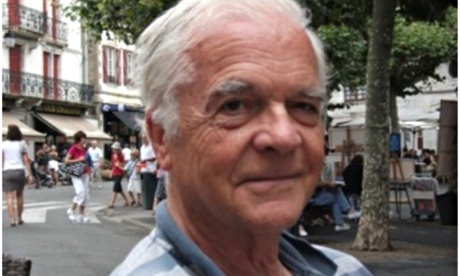
David Smail, who has died aged 76, was a leading clinical psychologist and an influential writer, whose work exposed the damaging psychological effects of an increasingly competitive and unequal society. His book Illusion and Reality: The Meaning of Anxiety (1984) was an early analysis of how inequality spawns chronic insecurity, especially among those with the least power and control. In Taking Care: An Alternative to Therapy (1987) David analysed psychological expertise, showing how the mythology of "the talking cure" reflects a society obsessed with imputations of personal blame and responsibility, and how this benefits the powerful.
David wrote that Margaret Thatcher taught him more than anyone else about the misuse of political power as the basis of personal suffering. In The Origins of Unhappiness (1993) he described how, during the 1980s, he found himself working more and more with individuals afflicted by distress that they attributed to their own failures to adjust to the changing times. David saw that their malaise was in fact produced by the toxic social and economic policies of Thatcherism.
In Power, Interest and Psychology (2005), David outlined what he called a social-materialist psychology. This places distress firmly in a material context, recognising the extent to which our feelings, thoughts and behaviour are shaped by economic and social circumstances. David proposed that if we want to understand why we are unhappy then, rather than insight, we must cultivate "outsight" into the world around us. It is a perspective that encourages personal modesty, appreciation of luck, compassion, and recognition of our common humanity.
David was born in Putney, south-west London, to Harold, an insurance broker, and his wife, Olive. He studied philosophy and psychology at University College London (while also moonlighting as a semi-professional jazz drummer), and was awarded a PhD in psychology in 1965. He entered the NHS as a clinical psychologist in 1961, and in 1964 joined the psychology department at Claybury hospital, Essex, where he and his fellow psychologist Tom Caine pioneered the therapeutic community approach to treatment, which emphasised patients becoming active participants in their own and others' rehabilitation.
Their work included a co-written book, The Treatment of Mental Illness (1969), in which they argued that the personal characteristics of therapists were more influential than theories or techniques, and that patients' confusion and despair could be traced not to faulty brain chemistry but to the cruelty and neglect that blighted their lives. This approach became the basis of much of David's later writing, which was always underpinned by his clinical practice.
David was appointed head of the NHS clinical psychology department in Nottingham in 1969, and quickly developed a county-wide service with a structure of specialisms. In those days, clinical psychology's main function was seen as psychometric testing, predominantly under the aegis of psychiatry, but its scope and range expanded rapidly under David's guidance. For him, clinical psychology was a fundamentally intellectual enterprise, rather than an exercise in pragmatism, and those working alongside him were encouraged to become creative and rigorous applied scientists.
David was committed to the education and training of psychologists. He developed a clinical option in the psychology degree at Nottingham University, and was awarded an honorary chair there. After his retirement in 1998, he continued teaching on several UK therapeutic psychology training courses. Despite – or perhaps because of – his disillusionment with what he saw as the increasingly hubristic claims made for talking therapy, in 2002 David founded the Midlands Psychology Group, a close-knit group of critically minded academic and therapeutic psychologists.
David believed that if we are to ease distress we must abandon our faith in therapy and take better care of each other. Psychotherapy might offer comfort, clarification and encouragement, but for many, perhaps most, it does not offer a cure. This can only be found through changes in our social arrangements – an essentially political task. It is no small tribute to David's life and work that his arguments seem truer than ever today.
He is survived by his wife, Uta, his two children, Alastair and Deborah, and five grandchildren.
• David John Smail, clinical psychologist, born 23 April 1938; died 3 August 2014

